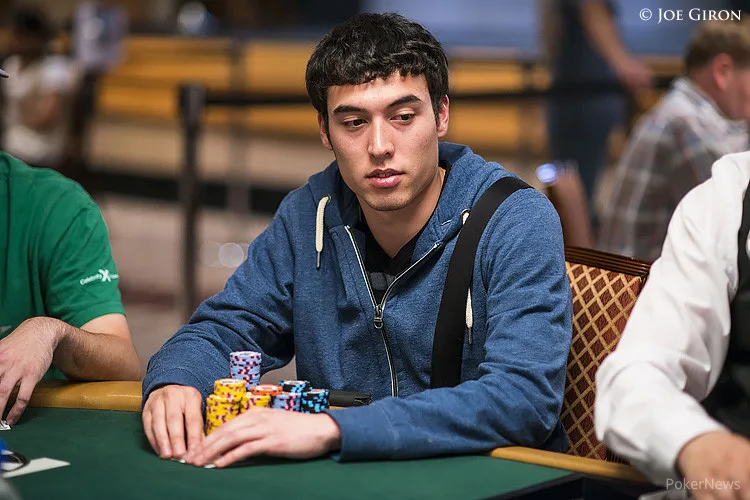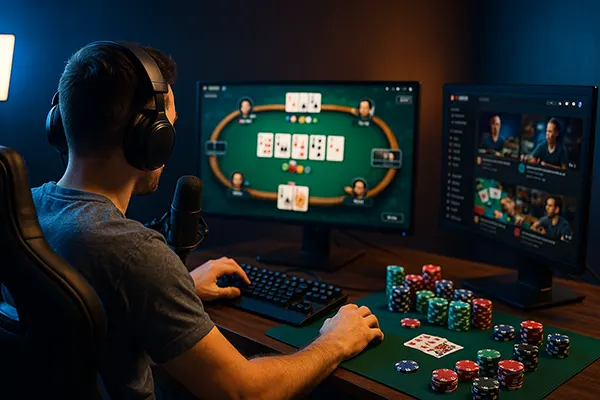
Social Poker Clubs: A New Trend Among Amateurs
In recent years, social poker clubs have emerged as a vibrant and fast-growing phenomenon within the recreational poker scene. Unlike traditional tournaments or cash games in commercial venues, these clubs focus on building communities around shared passion rather than profit. This new trend is reshaping how amateur players approach poker, fostering connections, collaboration, and skill development in a relaxed yet competitive environment.
The Rise of Social Poker Clubs
Social poker clubs have become increasingly popular across Europe and beyond, particularly from 2020 onwards, as more players sought alternatives to impersonal online games. They provide a welcoming setting where members can enjoy poker without the pressures of high-stakes competition. These clubs often operate as private associations or community groups, making them accessible to a wider audience of enthusiasts.
Most social clubs emphasise low buy-ins and friendly play, which encourages beginners to join and learn. Unlike commercial poker rooms, they do not aim to generate profit from players but instead reinvest membership fees into improving facilities, organising events, and promoting responsible play. This approach creates an atmosphere that prioritises enjoyment over financial gain.
Another factor behind their rise is the social aspect itself. Members often form strong friendships, attend local tournaments together, and share strategies in informal settings. This sense of belonging helps retain players and builds a sustainable grassroots poker community.
Key Features of These Clubs
Social poker clubs typically offer regular home-style games, small local tournaments, and educational sessions. Many provide coaching workshops where experienced players share strategies with newcomers. This focus on learning supports skill growth and makes the game less intimidating for amateurs.
Clubs also frequently host charity events or community fundraisers, linking poker with positive local engagement. These activities help improve public perception of poker as a social and skill-based game rather than purely gambling.
Membership is often based on referrals or simple applications, ensuring a safe and friendly atmosphere. This vetting process builds trust among players and reduces the risk of disruptive behaviour during games.
Benefits for Amateur Players
For newcomers to poker, joining a social club can be a transformative experience. It offers an environment where mistakes are part of learning rather than costly errors. Players can gradually build confidence without risking large sums of money.
Members benefit from consistent practice opportunities. Regular sessions help players improve decision-making, learn game theory basics, and understand table dynamics. This is especially useful for those aiming to transition to larger tournaments in the future.
Additionally, social clubs often provide mentorship. Experienced players willingly share advice, review hands, and guide less experienced members. This culture of mentorship accelerates development and fosters long-term engagement in the game.
Psychological and Social Advantages
Social poker clubs offer mental health benefits that go beyond improving gameplay. They provide a structured yet relaxed outlet for social interaction, reducing feelings of isolation and stress among members. For many, this sense of community is just as valuable as the game itself.
Participating in club activities also promotes patience, discipline, and emotional regulation — key soft skills that extend beyond the poker table. Members learn to handle wins and losses with composure, which can positively influence other areas of life.
Furthermore, being part of a supportive group boosts motivation and enjoyment. Celebrating achievements together — such as winning a local tournament — strengthens personal connections and builds lasting friendships.

Challenges and Future Outlook
Despite their benefits, social poker clubs face regulatory and organisational challenges. In many countries, legal frameworks around private poker games remain unclear. Clubs must carefully structure operations to comply with local laws on gaming and membership associations.
Another challenge lies in maintaining a balance between competition and camaraderie. As clubs grow, they risk becoming overly commercial or competitive, which could undermine their core community-focused values.
Looking ahead, the future appears promising. More amateur players are seeking these clubs as a way to socialise, learn, and enjoy poker without financial pressure. If they continue to prioritise ethics, transparency, and education, social poker clubs could become a lasting foundation of the amateur poker ecosystem.
Trends Expected in 2025
In 2025, experts expect to see further digital integration within social clubs, such as the use of mobile apps for scheduling games, tracking leaderboards, and sharing educational content. This could streamline organisation while preserving the social core of these communities.
There is also a growing interest in hybrid events, combining in-person and online play. These formats can expand participation, allowing members who cannot attend physically to remain active in the community.
Moreover, partnerships with educational and responsible gaming organisations are anticipated to rise. Such collaborations will strengthen the clubs’ reputation and ensure they remain safe and sustainable environments for amateurs.
Popular topics
-
 Kyle Ho Triumphs Over Gil Jack in an ...
Kyle Ho Triumphs Over Gil Jack in an ...Kyle Ho clinched the WSOP Circuit ring after a …
-
 Justin Bonomo: The Journey to Becomin...
Justin Bonomo: The Journey to Becomin...Justin Bonomo’s journey in the poker world is a …
-
 Poker and Streaming: How Twitch and Y...
Poker and Streaming: How Twitch and Y...Poker has long been a popular card game played …
